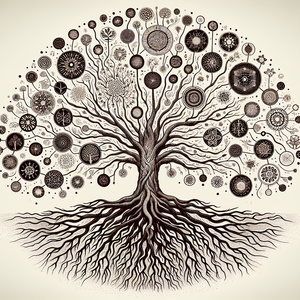Email Overload: Strategies for Digital Minimalism

Email overload manifests as the overwhelming sensation stemming from an excessive influx of emails, making it challenging to manage and respond effectively. This issue is compounded by the cultural expectation for immediate responses and the constant connectivity afforded by technology. A study conducted by McKinsey found that employees dedicate an average of 28% of their workweek to reading and responding to emails, highlighting the significant toll email overload can take on productivity. The psychological ramifications of email overload are alarming. Research indicates that a high volume of emails can trigger increased stress, anxiety, and feelings of being overwhelmed. The incessant cycle of notifications and messages distracts from our ability to concentrate and perform effectively, often resulting in diminished mental health and lowered job satisfaction. This creates a vicious cycle where stress leads to inefficiency, which in turn results in an even greater volume of emails to manage.
Strategies for Managing Inbox Overload
To effectively combat email overload, it is essential to adopt strategies that promote digital minimalism. Here are several practical approaches to consider:
Decluttering Your Inbox
Just as decluttering a physical space can create a more serene environment, applying the same principle to your inbox can yield substantial benefits. Begin by unsubscribing from newsletters and updates that no longer serve a purpose or provide value. Tools like Unroll.me can assist in efficiently managing subscriptions. Furthermore, implement a rigorous folder system to categorize emails based on priority or project, making it easier to locate important messages when needed. For instance, creating folders labeled "Immediate Action," "Follow Up," and "Archive" can streamline your email management process.
Setting Boundaries
Establishing boundaries around email usage is crucial for maintaining focus and reducing anxiety. Designate specific times during the day to check and respond to emails instead of allowing them to disrupt your workflow consistently. For example, checking emails only in the morning and late afternoon can create dedicated blocks of time for focused work. Additionally, consider instituting an "email-free" hour each day to concentrate on tasks that require deep focus without the distraction of incoming messages.
Utilizing Automation Tools
Automation tools can significantly alleviate the burden of managing emails. Features like email filters allow you to automatically sort incoming messages into designated folders, ensuring that only the most pressing emails demand your attention. Autoresponders can inform senders of your availability and set expectations for response times. Tools like Boomerang and SaneBox can help schedule emails for optimal times and remind you to follow up on important messages, ensuring nothing slips through the cracks. By automating repetitive tasks, you can free up mental space for more strategic thinking.
Practicing Mindfulness
Incorporating mindfulness practices into your email routine can help mitigate stress and enhance focus. Before diving into your inbox, take a few moments to engage in deep breathing exercises, allowing yourself to center your thoughts and emotions. This practice can shift your mindset from one of overwhelm to one of control, enabling you to approach your emails with clarity and purpose. Additionally, consider stepping away from screens regularly to recharge your mental energy, which can improve your overall productivity and emotional well-being.
Email overload is a pervasive challenge in our digital age, but by adopting strategies for digital minimalism, we can regain control over our inboxes and alleviate the psychological burden associated with excessive communication. By decluttering, setting boundaries, utilizing automation tools, and practicing mindfulness, we can enhance our productivity and overall well-being. Ultimately, embracing these strategies transforms our relationship with email and paves the way for a more focused and fulfilling life in an increasingly interconnected world. Let us take the first step towards a healthier digital existence by implementing these practical solutions today.
Email Marketing Specialist
Digital marketing agencies, e-commerce companies, tech startups
Core Responsibilities
Design and execute email marketing campaigns to engage and retain customers.
Analyze campaign performance metrics to optimize content and delivery times.
Maintain and update email lists to ensure data integrity and compliance with regulations.
Required Skills
Proficiency in email marketing platforms (e.g., Mailchimp, HubSpot).
Strong analytical skills with the ability to interpret data and drive insights.
Knowledge of SEO and content marketing strategies.
Digital Wellness Coach
Wellness centers, corporate wellness programs, private practice
Core Responsibilities
Guide clients in developing strategies for managing digital communication, including email overload.
Conduct workshops and one-on-one sessions focusing on mindfulness and productivity techniques.
Create personalized plans that help clients find a healthy balance with technology use.
Required Skills
Certification in life coaching, wellness coaching, or a related field.
Excellent communication and interpersonal skills.
Familiarity with mindfulness practices and digital minimalism concepts.
User Experience (UX) Researcher
Tech companies, product design firms, consulting agencies
Core Responsibilities
Conduct user research to understand how individuals interact with email platforms and identify pain points related to overload.
Analyze user feedback and data to inform design improvements and feature enhancements.
Collaborate with design and development teams to create user-centered solutions.
Required Skills
Experience with user research methodologies (e.g., surveys, interviews, usability testing).
Strong analytical skills and proficiency in research analysis tools.
Knowledge of design thinking and UX principles.
Productivity Consultant
Consulting firms, corporate training organizations, freelance practices
Core Responsibilities
Assess client workflows and recommend strategies for optimizing productivity, particularly in email management.
Develop and implement systems for effective time management and prioritization.
Provide training on tools and techniques for reducing email overload.
Required Skills
Proven experience in project management or organizational development.
Strong presentation and facilitation skills.
Familiarity with productivity software and tools (e.g., Trello, Asana).
Corporate Trainer in Digital Communication
Corporations, educational institutions, training consultancy firms
Core Responsibilities
Develop training programs focused on effective email communication and digital organization for corporate clients.
Facilitate workshops that teach employees how to manage their email efficiently.
Monitor and evaluate training effectiveness, making improvements based on feedback.
Required Skills
Background in education, training, or human resources.
Excellent public speaking and instructional design skills.
Knowledge of current trends in digital communication and workplace productivity.


